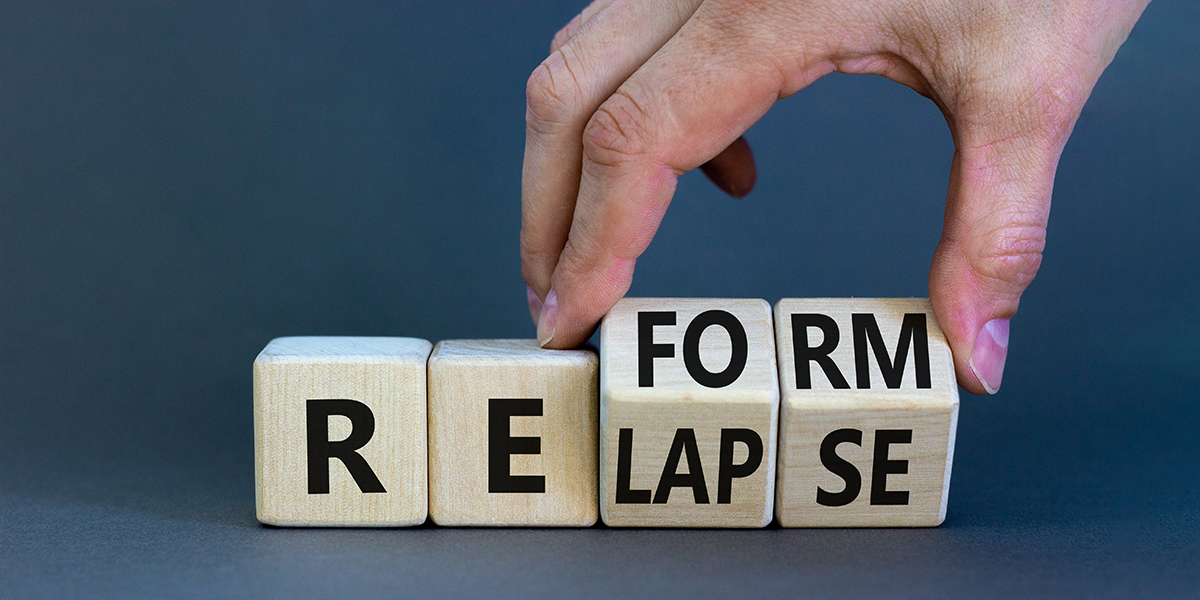How many times tries does it take to get sober?
Relapse. A dreaded word within addiction recovery circles. Depending on what people hear about relapse or experience within their own journey in recovery, relapsing may seem like a chronic condition associated with alcohol and other drug (AOD) problems. Knowing an exact number could help provide a reference point, but as of today, estimates on the number of attempts remain unclear.
Much of what we know about recovery attempts and relapse come from tobacco cessation attempts, with estimates for alcohol, opioid, and other drugs remaining skewed, or lacking a clear, unanimous answer. But rather than evaluate AOD problems as a separate entity from other chronic medical illnesses, such as hypertension and diabetes, we can view alcohol and drug addiction through the same lens and evaluate treatment and management as we do other chronic disease and illness.
According the to the National Institute on Drug Abuse (NIH), “Relapse rates for addiction resemble those of other chronic diseases such as diabetes, hypertension, and asthma.” Compared with patients who relapse, drug addiction sees a 40 to 60% relapse rate with hypertension and asthma, seeing a 50 to 70% rate for relapse.
Many currently view relapse within addiction treatment as failure, whereas there is an understanding to reinstate or adjust the treatment model for other types of chronic medical illness. This perspective casts a shadow on relapse after addiction treatment and creates a feeling of failure when relapse happens.
When we come to see the concept of relapse as non-binary rather than either/or, we can view relapse as part of the continuum of self-care, evaluating, and goal-making. While abstinence is how we interpret long-term sobriety, it is not the only measure of success. With a support system and tools, people can anticipate and make adjustments in their recovery from drugs and alcohol.
How to Maintain Recovery Using the Disease Model of Addiction
Just as managing diabetes and high blood pressure requires a plan, monitoring, and accountability, recovery and maintaining sobriety from drugs and alcohol require coping skills, support, and self-care techniques. It’s not as simple as “Just say no”. An individualized relapse prevention plan can help offset the risk of relapse.
Relapse Prevention Plan
Relapse prevention is much more than choosing not to use drugs or drink. The plan revolves around replacing unhealthy cues, triggers, and habits with healthier options that can help sustain sobriety. Much like a rehearsal, the plan can serve as a reminder of goals and expectations and identify the warning signs of relapse.
Stages and Warning Signs of Relapse
Relapse rarely happens overnight, and follows a gradual set of stages: Emotional, Mental, and Physical. Within each stage, you can see a predictable set of warning signs. When people can recognize these signs and take action, they can help set themselves up for success. The following are some of the early warning signs during the 3 stages of relapse.
Emotional Relapse
Although not thinking about using drugs and alcohol, this early stage of relapse can set the stage for relapse later. Practicing self-care, either emotionally, psychologically, physically, or all, can help. Some signs of emotional relapse include:
- Poor eating or sleeping
- Not engaging in meetings
- Not attending meetings
- Placing focus on others
Mental Relapse
People may bargain with themselves and think it may be alright to use again. This can look much different from the early stage of recovery when the feeling of not using was quite strong. Cravings and memories of “the good times” can create a sense of shame, and they may feel reluctant to share these feelings. Signs during this stage include:
- Glamorizing drug and/or alcohol use
- Lying
- Seeking opportunities to use
- Planning to use
Physical Relapse
When a person is stuck in mental relapse, the chance of physical relapse is much higher. During this stage, a person uses alcohol and/or drugs again. Just once may lead to uncontrolled using again. Whether a onetime slip or complete relapse, getting in touch with a community sponsor, treatment center, or trusted person can help.
Drug and Alcohol Treatment
No matter where a person falls in their journey, Pura Vida Recovery Services can help restore joy without the use of drugs and alcohol. If you need support, contact us for a confidential assessment.





